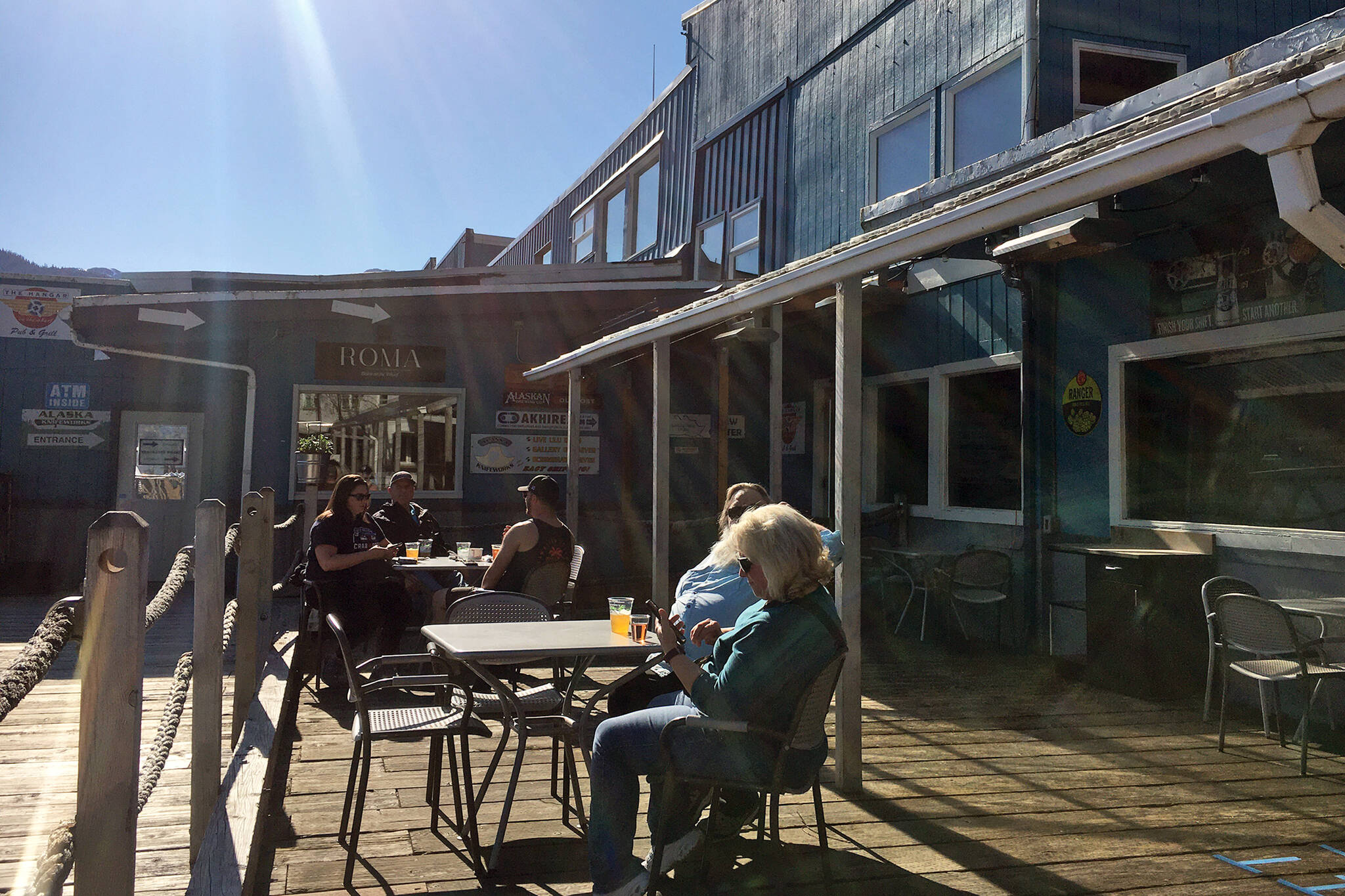A $20 pizza in Juneau actually costs $21 at check out because of Juneau’s 5% sales tax. But soon, voters will decide if the same pie should cost $20.40.
Most purchases in the City and Borough of Juneau include a 5% sales tax. But, every five years, Juneau’s voters get a chance to decide whether to reduce it to 2% by stripping out the 3% “temporary” tax embedded in the rate. In next month’s election, voters will have a chance to weigh in on the matter.
The city directs money collected from the temporary tax toward street maintenance and general city and borough operations.
Adrien Speegle, CBJ budget analyst, said the money from the tax has — or will — be used on projects such as the Valley Transit Center and the partial roof at Sayéik: Gastineau School. She said it’s also used for areawide drainage improvements, electric vehicle charging infrastructure, bus shelter improvements, sport field repairs, and park and playground maintenance and repair projects.
Speegle said that of the temporary portion of Juneau’s sales tax, 1% is allocated to general government operations; 1% to roads, sidewalks and related infrastructure; and 1% toward capital improvements, community grants, other public services and rainy day funds.
The tax was last extended in Oct. 2016 and went into effect on July 1, 2017. If voters don’t approve an extension of the tax, it will expire on June 30, 2022. If the extension passes, the tax will stand for another five years.
Revenue implications
In most years, the extra 3% generates significant income for the city — about $30 million, according to a memo CBJ finance director Jeff Rogers shared with the City Assembly this summer.
According to the memo, “of that $30 million, CBJ has annually invested approximately $10 million in street maintenance, $1.5 million in general capital improvements, and $18.5 million in general city/borough services including police, fire, parks and recreation, and community grants.”
Declining sales tax revenues
Pandemic-related restrictions on travel and cruising have taken a bite out of city revenues this year.
On Wednesday, Rogers reported that the city collected $40 million in sales taxes for fiscal year 2021—a bit more than the $39.9 million the city projected.
In an average, pre-pandemic year, sales tax generates upward of $50 million, the memo said. By comparison, the city expects $56.4 million in property taxes for fiscal year 2022.
Without the 3% renewal, city leaders would face tough choices.
“Without a renewal of the 3% temporary sales tax, and without budget reductions, the property tax mill rate would need to increase 5.54 mills from 10.66 mills to 16.20 mills to have sufficient revenue for city services. Such a mill rate would exceed the 12 mill operating mill rate cap established in the CBJ Charter.” read Rogers memo to the assembly.
Commercial tax assessments under review
About Juneau’s sales tax
According to the memo, in addition to the 3% temporary sales tax, CBJ’s sales tax includes a 1% permanent sales tax for general city and borough operations and a 1% temporary sales tax for specific community projects.
The finance department’s website outlines several tax breaks available to Juneau’s senior citizens. Seniors are eligible for tax exemption on certain items, including many grocery products and essential services, such as heating oil.
About the election
Elections officials will mail ballots to all of Juneau’s registered voters on Sept. 14. Residents can drop their completed ballots off between Sept. 16 and Oct. 5. Drop boxes will be available 24 hours a day, seven days a week.
Voters will find a drop box outside the Douglas Library/Fire Hall Community Building located at 1016 3rd Street, Douglas.
Election officials will place a second box at the Auke Bay Don D. Statter Harbor boat launch parking lot (not the harbor office parking lot) located at 11801 Glacier Highway, Auke Bay.
Beginning on Sept. 20, voting centers will be available for early in-person voting, ballot replacement, or ballot drop-off. Locations include the City Hall Assembly Chambers, located at 155 S. Seward Street downtown, and the Mendenhall Valley Public Library, located at 3025 Dimond Park Loop. Hours for both sites vary and are available on the clerk’s web page at https://juneau.org/clerk/elections.
On election day, both vote centers will be open for in-person voting between 7 a.m. and 8 p.m. Drop boxes will close at 8 p.m.
Results will be available a few days after the election, as members of the clerk’s staff will travel to Anchorage to count the ballots.
• Contact reporter Dana Zigmund at dana.zigmund@juneauempire.com or 907-308-4891.

